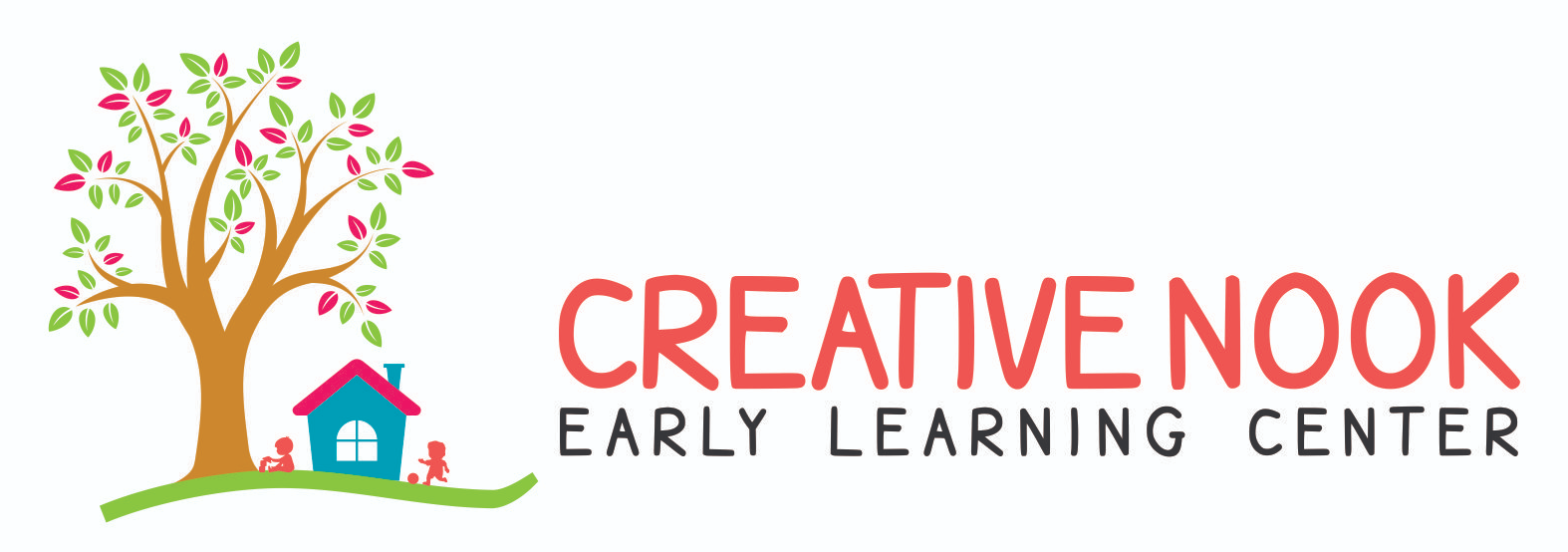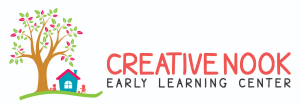Let’s Count

Early Years Numeracy and its Importance It is known and well researched that children learn so much more during their first 5 years, compared to rest of their life. Babies are born ready to learn, with more than one million neural connections forming every second during the first few years of life. Researches have shown that children who participate in quality education program in early years usually have a better concept of math and arrive at school better equipped with stronger sense of confidence, social skills and cognitive skills. Numeracy is one of those concepts that are better learned through day-to-day activities. Early Numeracy is not about children saying numbers by rote method, it is much more than that. Numeracy is all about counting, measuring, understanding concepts like symmetry, fractions, Grouping, sorting, estimating, adding, subtracting and much much more. This is all done through play, conversions and interactions between adults and children. We need numeracy to do things like: Problem-solve: How many beads i need to make a bracelet for my mum? Patterns: What comes next? What number will be my house? Making choices: How many slices of pizza I have and what can i share? How do children learn Numeracy? Child learn the concept of numeracy from the day they are born. Learning happens through experiencing Numeracy in action. For example, While walking to the park, we can count how many trees are passed or what house numbers we can see on the left and the right side of the street. These discussions will allow children to learn the concept of direction, one to one correspondent counting, odd and even numbers and recognition of numbers. While cooking, you can talk to children about the quantity or items that are getting used. For example, how many cups of flour do we need to make cookies? or how many slices of apple we want to cut? These discussions will allow children to learn the concept of volume, measurement and fractions. Math is Everywhere When you engage with children in book reading, playing with blocks or art and craft activities, they will learn how and why math is useful. Small and big Fast and slow How far and how close First, second and last It is true that Math is everywhere, and it is up to us on how we incorporate that into children’s daily lives. Reading books that have numbers is one way to show children how numbers work. Like Five Little ducks, Goldilocks and the Three Bears, Ten little Fingers and Ten Little toes are some of those examples. Playing in the playground with balls and kicking and counting kicks, or simply going to the shops and looking at all the price tags that have specials, can also start the conversation with children about big and small numbers. I know, when I go for a drive my 3 year old daughter always points out the speed signs and we have a discussion about what that number is and what it means. We match and compare that number with the speed on my dashboard and usually, this also keeps me checked with my speed limit. Math can be fun, and making it fun is our job as a parent and as an educator. Research has shown that, if the children are having fun, they are definitely grasping the concepts of what we are trying to teach them. What is the Let’s Count Program Creative Nook Early Learning Centre has partnered with the LET’S COUNT PROGRAM run by The Smith Family. This award-winning program is developed by pioneers of early childhood education Bob Perry and Sue Dockett, who wants educators and parents to Notice, Explore and Talk about Math in everyday life. The Let’s Count program has been implemented in Australia since 2010. Our educators are currently going through the training on how to support families and children in making math more fun and part of the daily conversation, without it being a chore. Let’s Count provides face to face and online training to early childhood educators, to support children and facilitate the engagement of families into their children’s daily mathematical experiences. What to do next Its simple! Just Notice, Explore and Talk about mathematical concepts in children’s everyday lives. You can also use this handy tool to help you find ideas and concepts on how to incorporate math in children’s daily lives. The Let’s Count Facebook Messenger bot is an interactive platform that uses everyday activities and objects to suggest ways in which you can support your children’s math’s learning, like counting the change and weighing the fruit whilst out shopping. The activities are all designed to help children to Notice, Explore and Talk about mathematics. https://www.youtube.com/watch?v=-9RMTtrZPEs&ab_channel=TheSmithFamily Why is this Important At Creative Nook, we believe that children learn through play and they should develop the early Literacy and Numeracy skills. Numeracy skill is the foundation for a successful participation in society, where math is used for budgeting, marketing and employment. STEM is a part of our daily curriculum, where children are learning concepts of Science, Technology, Engineering and Math. Our children engage in a variety of activities, like sorting, dice play, dance movements, play dough making and cooking activities. These activities focus on children’s ability to ask questions, discuss, problem solve and develop not just numeracy but social and communication skills. Through partnership with families, and introducing Let’s Count initiative among our community, will only strengthen the mathematical ability of children as they transition to primary school. Not just children, but their families will also feel confident that they had best opportunities in early education. Our aim at Creative Nook is to work in collaboration with families, and educate and support them to know more about everyday math and how to implement Math in children’s everyday play. Together, we can change the way we see math and show our children that math can be fun and easy to learn. If they are provided with best support now, in their early years,
What is School Readiness?
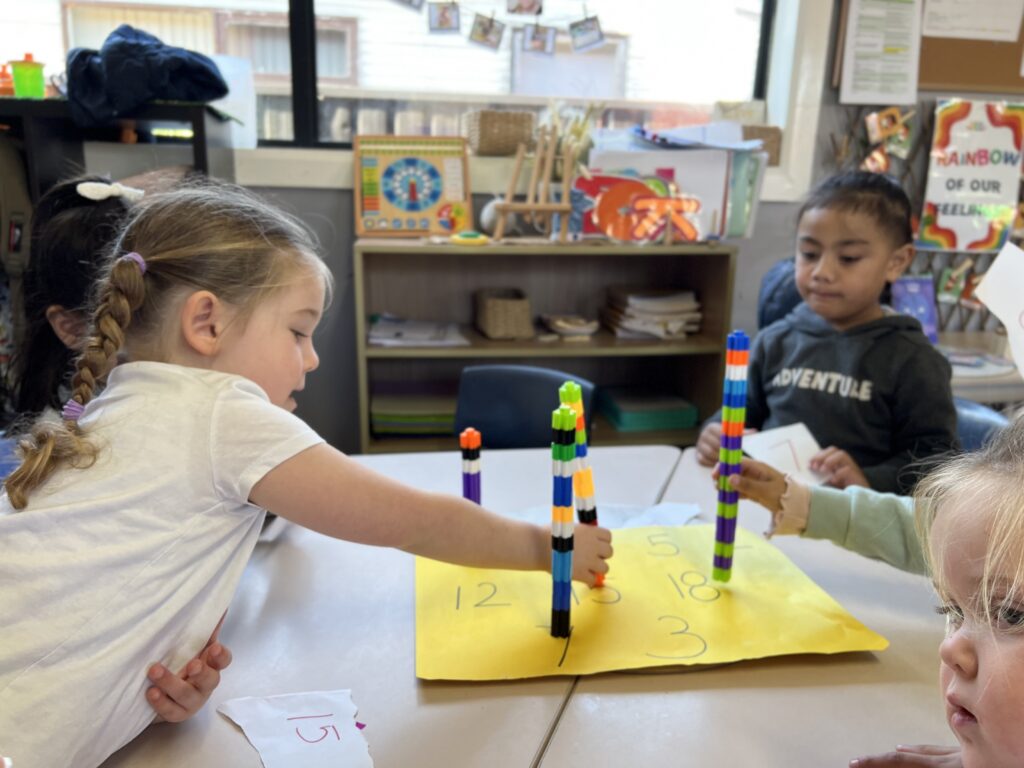
Parents sometimes think that school readiness is all about writing their names and identifying numbers and letters, but it is much more than that. How many times we have heard, “My child doesn’t know numbers and letters”, or “I need him to know how to write his name.” or “Oh! My child does not like school, he can’t sit still for group time at school”. Or “The childcare did not help with their academic skills.” However, as a parent, I will ask myself a question, “Does my child feel shy in asking a question to someone they are not familiar with?”, “Do they cry every time they don’t get their way.”, “ Do they have a short attention span and they only sit for few minutes when asked to join in some writing or reading activities?” If your answers are YES then STOP and rethink the importance of a good School Readiness program and what it involves. Talk to your childcare educators and see what their focus is. If it is solely academic, then you are at the wrong place. The child may not engage in activities, because they may not have the social skills to turn-take or the ability to problem solve in challenging activities or patience to sit and listen to stories. The child missed out on developing these essential skills in the Childcare, because lot of focus was given to developing writing and reading skills. So what is school readiness really? At Creative Nook, School readiness is about the whole child approach. Children should be confident, socially independent and have the ability to communicate their needs positively with other adults and their peers. These skills are taught in the early years and are very essential for children to grow up to be independent, great problem solvers and have a sense of positive self-worth. I know, we think that as the children will grow they will learn these skills as it comes. But studies have shown that young children when taught the correct way to express their emotions or self-regulate their emotions are better adults in challenging situations. They are more confident in dealing with stressful situations, especially work environments. At Creative Nook Early Learning Centre, we believe that it is important that all children are provided with quality education and care to support their smooth transition to the primary school setting. As the curriculum in primary school expects children to have certain level of knowledge, skills and behaviours, we integrate various Literacy and Numeracy concepts with Early Years Learning Framework to support children in their social, emotional and educational development. Where do we Start? So let’s dive into the world of school readiness one step at a time! Childhood is a journey not a race. Children should be part of PLAY which are inclusive of problem solving play, child-directed play and intentional play, allowing children to think rights and wrongs and help them develop critical thinking. At Creative Nook, we believe that children learn through Heart, Hand and Head. If they like what they see, then they will pay more attention to it and it will then allow them to learn new concepts. Play-based learning capitalises on children’s natural inclination to be curious explorers and learners. Children actively construct their own understandings that contribute to their own learning. In play experiences children integrate their emotions, thinking and motivation that assists to strengthen brain functioning. School Readiness is a concept that refers to the physical, socio-emotional, language and cognitive developmental milestones of children. School readiness is a transition that involves children to be able to confidently explore any new environment and experiences with confidence, enthusiasm and positive attitude. Research indicates that pre-schoolers who attend high quality programs: Enter kindergarten with skills necessary for school success. Show greater understanding of verbal and numerical concepts. Are more socially competent. Show ability to stay with an activity longer. Are more likely to make typical progress through the primary grades. Are less often placed in special education classes. Are less likely to be retained in kindergarten. Starting school is a big change not only for your child, but for the families too. You can find more information on how to best support your child from the Department of Education. School Readiness Program At Creative Nook Children should learn through play and participating in activities independently, where educators create hands-on, open-ended experiences for children to achieve their own goals- the goals set by children. We believe that each child is an individual who has the ability to gain knowledge in their own time. Educators are mere facilitators and collaborators who work with families and children to allow them to reach their potential. Some regular activities that children are involved in our preschool room are: News time or Show and Tell A great way for children to develop confidence, the concept of question and answer and story-telling. Children not only develop their vocabulary but also learn to listen others. Giving respect to peers and their contribution to learning and teaching. Role play Role play or dramatic play allows the children to develop their understanding of the world around them and how they fit in to the world. They learn to imagine, create stories and develop their individuality about their likes and dislikes. Group Games Group games like connect Four, build a bug or any other turn taking games allows children to develop self-esteem, self-confidence and ability to understand the fair play. A very essential skill for adults to work in a team environment. It also develops the concept of reading and writing as children are exposed to various texts in a variety of formats. Open-Ended Play Open ended play is a play with anything, anyway you like. Children are not bound by the concept of failure, so they will play and re-play the scenarios again and again. This allows them to be more creative, great thinkers and problem solvers.Best kind of toys for this kind of play are not rigid or
Sustainability In Childcare
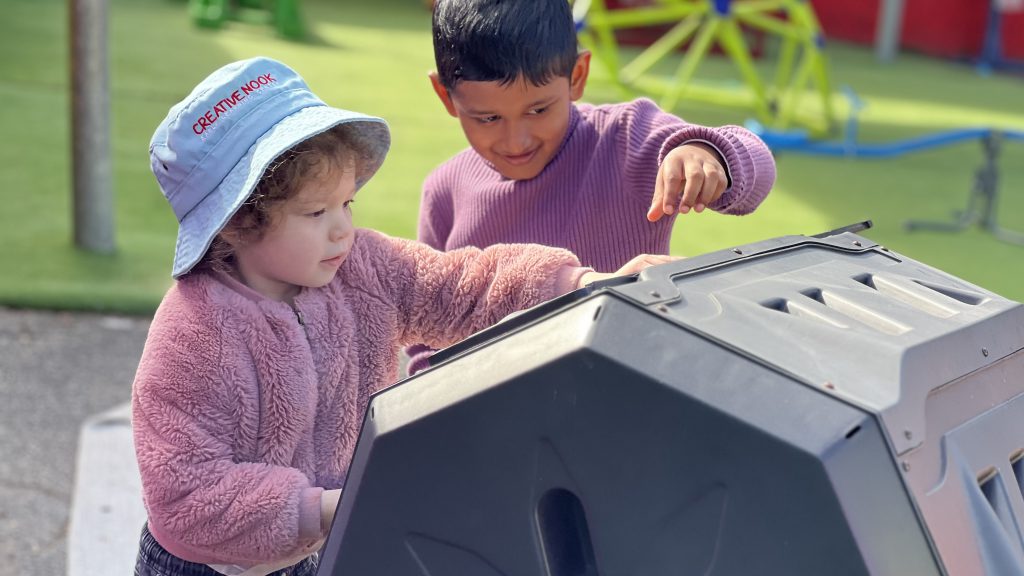
Sustainability in childcare improves the quality of our lives and protects the future of our ecosystem. It is essential to preserve the natural resources for longevity of our planet earth. Creative Nook Early Learning acknowledges that sustainability is embedded in our life. That is why we involve the community, families, children and our educators in achieving our goal to be more sustainable and support the environment for the better future of our young generation. We want you to be a part of our approach to sustainable living and it is very simple. Here are 5 steps you can take to be more sustainable. Conserve EnergyTurn off your lights, appliances and TV when not in use. All appliances including TVs and computers consume energy when left in standby mode. Turning them off at the wall will you use less energy and also save on your electricity bill. Conserve WaterTurning off the water when brushing your teeth will help to conserve water. Take shorter showers and change your shower head with one with a higher water rating. Fixing any leaking or dripping taps can also save a significant amount of water in the long run. CompostingSetting up your own composting system or worm farm is a great way to recycle your food scraps and turn them into fertiliser and use it in your garden. RecycleEnsure you sort your rubbish into the correct bins. Remember to reduce waste and reuse where possible. Here are some of the ways we have implemented sustainability in childcare at Creative Nook: We have partnered with Share Waste and are a host to collect food scraps from our neighbours for our compost bin. We then reuse the compost in our garden and share it with our families. We have partnered with Wonder to recycle bread bags which earns us points for sports equipment. We are working with collaboration with The Bin Chicken and are collecting bottles, tags, oral care products to recycle and support the Community Pantry run by The Bin Chicken. We have installed green Hot Water System under the NSW Energy Savings Scheme. The system uses a heat pump to transfer heat from the air to heat water. This reduces electricity usage and reduces our carbon footprint. How can we help Reduce Reuse Recycle At Creative Nook, we have incorporated sustainability in childcare as part of our curriculum and we believe that sustainability should be part of our daily lives. Here are some of the ways in which we protect our environment and teach children to be more sustainable. Children and educators are trained, educated and provided with support to become more sustainable. Children and educators are taught to minimize the use of electricity by turning off lights and AC when outdoor. We use water in moderation to reduce wastage. The leftover water in cups and jugs are used to water our plants in the garden. Our philosophy encourages creativity, so out educators and children engage in co-construct learning about how to repurpose materials used in our day-to-day life. Our commitment to sustainability does not stop at children and educators. We involve families and our broader community as well. We are very proud of the support that we receive from our community. Our families bring in reusable items that children can use in their play. This allows us to repurpose old gift wraps, ribbons, pipes, buttons and much more. This also allowed children to engage in more open-ended play with materials that they see and use everyday. Our commitment to sustainability is reflected in our policy. Sustainability for Children Children love engaging with the environment around them. Our educators take great pride and joy in making sustainable activities part of the children daily routines. These include the following: Children are encouraged to use one paper towel for drying hands after washing. Children will use the left-over water from jug and cups to water plants Children will learn to re-purpose their paintings and art works to practice cutting. Children will continue and revisit their art works, to add more to their creations. Involving children in composting and gardening activities. Sustainability for Educators Our educators play an important role in achieving our sustainability goals. Our children look up to our Educators, so their actions play a pivotal role in shaping our childrens behavior’s when caring for their environment. Educators use recyclable materials to create resources and learning experiences. All educators respect the usage of electricity and water and work towards improving the way we use them. All educators support families, children, and the service to work towards sustainability by following our sustainability policy. The Educators will teach children to respect the natural and man-made world around them. Our Sustainability Action Plan Reduce our carbon footprint by reducing electricity consumption. Reuse food scraps to create soil and composts to plant and grow fruits, vegetables and herbs. Repurpose metal, tires, and other reusable materials to create sustainable learning spaces. Model sustainable practice by using natural resources in the rooms and encouraging families to bring in bottles, corks, and containers, so children can use their creativity and repurpose them.
How to Deal With Temper Tantrums in 4 Year Olds?
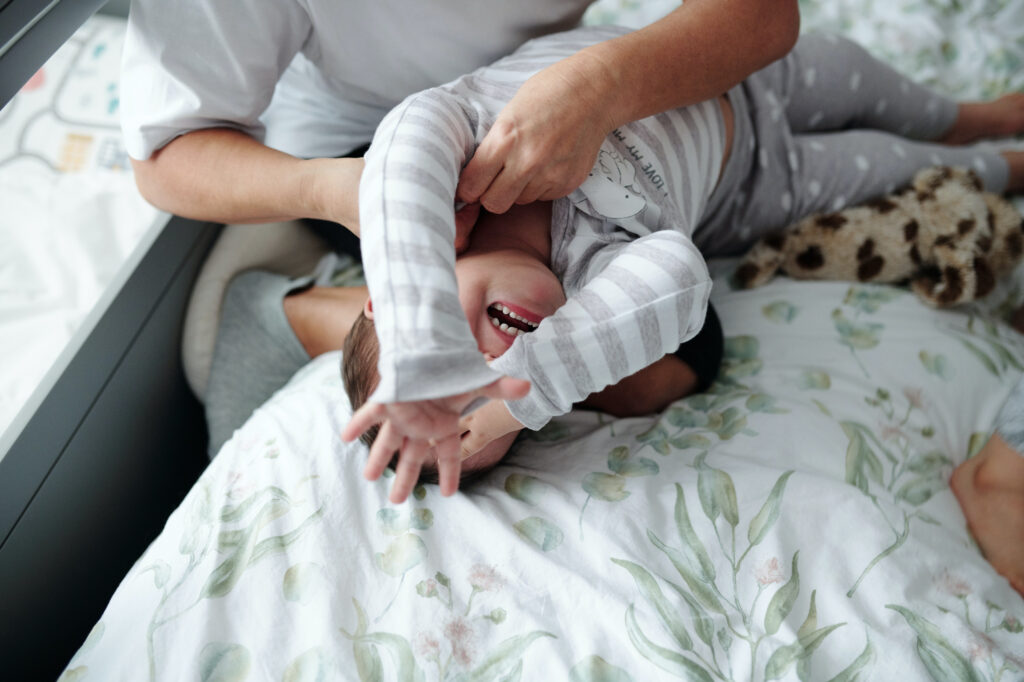
Tired of dealing with temper tantrums or don’t know what to do when your child throws one? Learn all about temper tantrums from an experienced psychologist.
